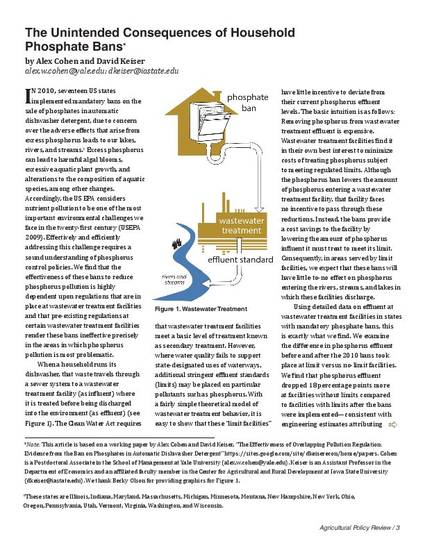
Other
The Unintended Consequences of Household Phosphate Bans
Agricultural Policy Review
Publication Date
1-1-2015
Disciplines
Abstract
In 2010, seventeen US states implemented mandatory bans on the sale of phosphates in automatic dishwasher detergent, due to concern over the adverse effects that arise from excess phosphorus loads to our lakes, rivers, and streams.1 Excess phosphorus can lead to harmful algal blooms, excessive aquatic plant growth, and alterations to the composition of aquatic species, among other changes. Accordingly, the US EPA considers nutrient pollution to be one of the most important environmental challenges we face in the twenty-first century (USEPA 2009). Effectively and efficiently addressing this challenge requires a sound understanding of phosphorus control policies. We find that the effectiveness of these bans to reduce phosphorus pollution is highly dependent upon regulations that are in place at wastewater treatment facilities and that pre-existing regulations at certain wastewater treatment facilities render these bans ineffective precisely in the areas in which phosphorus pollution is most problematic.
Citation Information
Alex Cohen and David A. Keiser. "The Unintended Consequences of Household Phosphate Bans" (2015) Available at: http://works.bepress.com/david_keiser/3/
